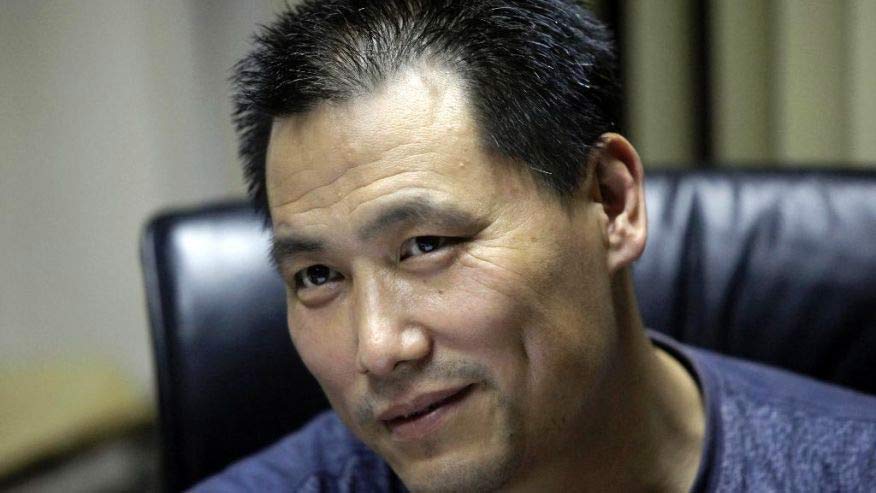The lawyer is Pu Zhiqiang, a smart and steadfast man whose commitment to defending rights runs all the way back to his participation in the 1989 Tiananmen Square movement. He has defended high-profile Tibetans, including Karma Samdrup, and Perry Link described his outlook on minorities in the PRC thusly:
In his comments on Uighurs and Tibetans, Pu tries to appreciate how ethnic minorities see things—not ideologically but as practical matters of daily life. He hears about a new regulation ordering that Buddhist temples in Tibet hang portraits of the top Chinese leaders—all Han—and that the stated reason for the move is “to dissipate religious consciousness.” He posts: “Are Han heads insane? Or only the head Hans?”

Pu Zhiqiang
The latest word is that Pu rejected the charges as groundless from his cell in a detention center, but it seems unlikely a Party-picked judge will agree- as Andrew Jacobs of the New York Times reminds us, as of 2013 Chinese courts had an acquittal rate of just 0.007%. Jacobs referred to legal experts who say that the issue centers on “China’s party-run judiciary, a system in which the police, prosecutors and judges work together to ensure convictions.” The consequences could be severe for Pu, who would face an 8-year prison term. The evidence presented by the government as proof of his incitement of ethnic hatred comes in the form of a handful of Weibo posts, the equivalent of tweets.
Meanwhile, Tibetans find it difficult to leave the country, and difficult to stay in it as well. Freedom of movement is one of the most basic and fundamental human rights, something enshrined in both the Universal Declaration of Human Rights (to which China is a signatory) and in the first Constitution of the People’s Republic of China (although it was later removed after the institution of the hukou system). The restrictions on passports, which are implemented in some places by requiring Tibetans to hand in old passports and then denying them new ones en masse, are completely unlike the way the Communist Party treats Chinese people. Domestic travel has become just as difficult, with Tibetans who live outside the Tibet Autonomous Region [TAR] finding it difficult or impossible to visit the TAR, and with Tibetans inside the TAR encountering new restrictions on their movement within their own ‘autonomous’ region. “We can’t accept Tibetans,” one hostel worker told Radio Free Asia. “It’s clearly stated in the police regulations.”
By choosing to charge Pu while they continue the practice of structural discrimination, the Party makes it clear that in their view ‘ethnic hatred’ isn’t incited by those who violate the rights of China’s ethnic minorities, but rather by those who call for these violations to end. It’s a view that reflects the absolutely dominant position that the Chinese hold in the Communist Party, and one that leaves no place for the view of the minorities- a polar opposite to the way Pu viewed the Tibetans and Uyghurs.
Didi Kirsten Tatlow recently wrote from a Chinese elementary school where students are taught mnemonic devices involving bloodthirsty Japanese people, and where parents muse about how “Tibetans are considered inferior and such allegedly inferior people will never lead China.” In Xi Jinping’s China they’re far less likely to get in trouble for ‘inciting ethnic hatred’ for saying something like that than someone else would be for commenting on it.
